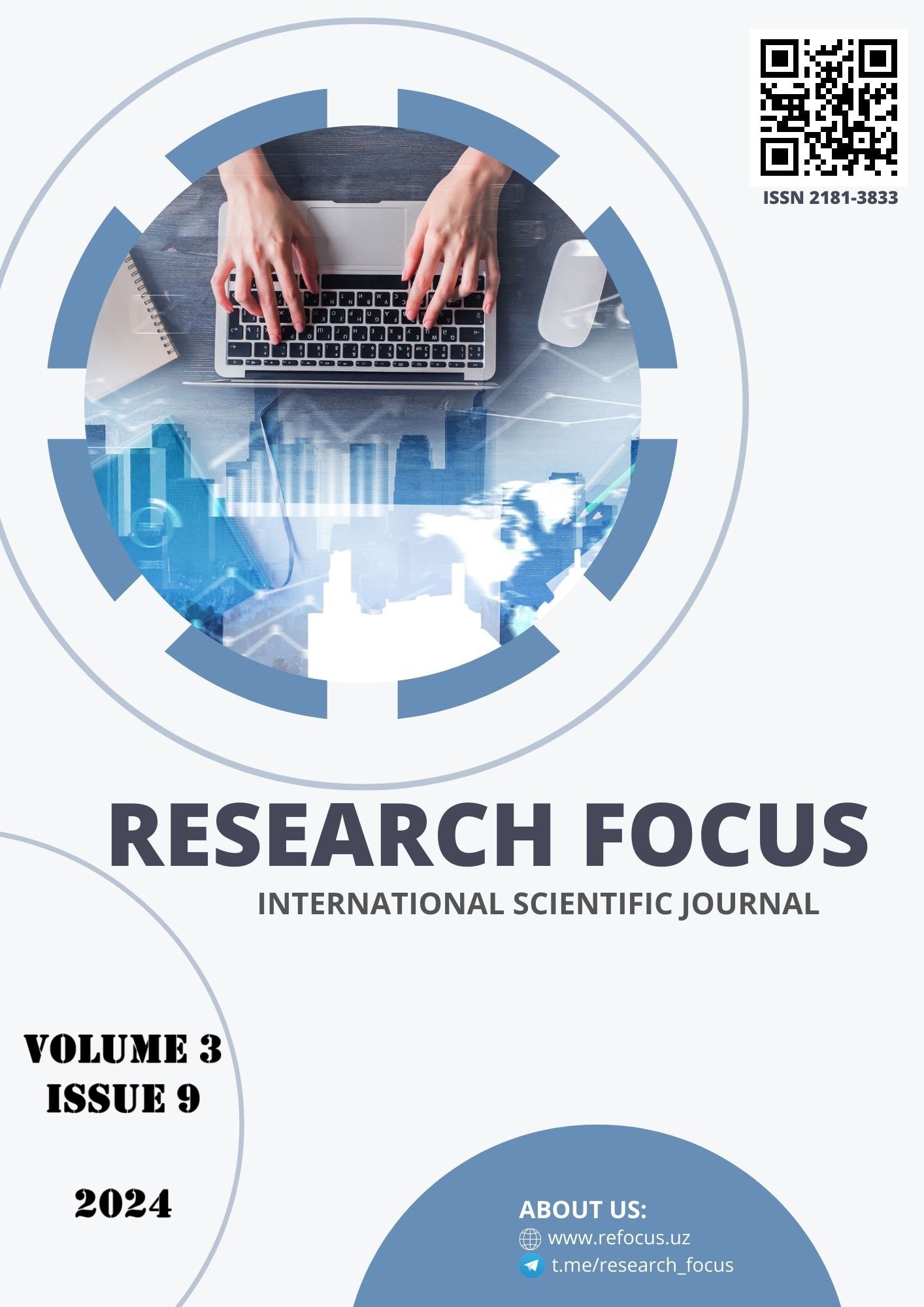GLAZING AND UNGLAZED POTTERY IN AFRASIYAB: A STUDY OF 7TH-12TH CENTURY TRANSOXANIAN CERAMICS
Main Article Content
Abstract
This research investigates the development of both glazed and unglazed pottery in Afrasiyab, one of the key cities in Transoxiana, from the 7th to the 12th centuries. The study analyzes the technological innovations, design motifs, and functional purposes of ceramics, exploring how local artisans adapted and evolved their craft in response to cultural, economic, and political influences. Using archaeological evidence and historical records, this research sheds light on the significance of pottery in the daily and ceremonial life of Afrasiyab, emphasizing its role in regional trade networks and cultural interactions. The findings offer a deeper understanding of how pottery reflected both the artistic heritage and the economic conditions of the time.
Article Details

This work is licensed under a Creative Commons Attribution 4.0 International License.
References
References
Grube, E. J. (1965). Slip Painting in Nishapur. *Bulletin of the Museum of Fine Arts*, 209-228.
Bloom, J., & Blair, S. (2009). Islamic Arts. Phaidon Press.
Bosworth, C. E. (2017). The History of the Seljuq Turks: From the Jami' Al-Tawarikh. Curzon Press.
Fehérvári, G. (1973). Islamic Pottery: A Comprehensive Study Based on the Barlow Collection. Faber & Faber.
Henderson, J. (2013). Ancient Glass: An Interdisciplinary Exploration. Cambridge University Press.
Jenkins, M. (1983). "Medieval Islamic Pottery: The Archaeological Evidence." In The Metropolitan Museum Journal, 18, 45–75.
Kawatoko, M. (2016). "Ceramic Production and Trade in Early Islamic Central Asia." In Bulletin of the School of Oriental and African Studies, 79(3), 455–478.
Lurje, P. (2010). "Afrasiyab and the Sogdian Civilization." In B. Genito (Ed.), Samarkand and Central Asia: History and Material Culture. Napoli.
Pugachenkova, G. A. (1971). Sogdian Art and Archaeology: Pottery and Architecture. Nauka Publishing House.
Whitehouse, D. (1972). "Islamic Glazed Pottery in Central Asia." In Journal of Central Asian Studies, 4(2), 15–37.
Whitcomb, D. S. (1989). "Samarqand and Early Islamic Ceramics in Central Asia." In Archaeology of the Islamic World, 13(2), 231–257.
Appendices
№ The figure Type colour technique glaze vessel
monochrome Earthenware carved unglazed jug
Monochrome Earthenware moulded Unglazed jug
Monochrome Earthenware monocoloured Unglazed pitcher
Monochrome blue monocoloured Transperent glazed pitcher
Monochrome Earthenware carved Unglazed pitcher
Monochrome green monocoloured Transperent glazed jug
Monochrome green carved Transperent glazed Boot-shaped vessel
Monochrome green scratched Transperent glazed vessel
Monochrome green insiced unglazed lamp
Monochrome earthenware carved Unglazed Pitcher
Monochrome Earthenware insiced Unglazed pitcher
Monochrome earthenware Moulded Unglazed jug

